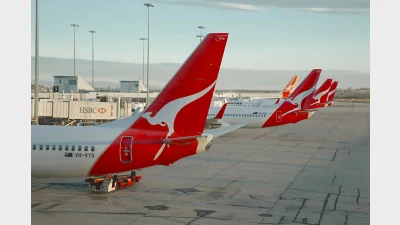Qantas Super flags ‘prudent’ option to explore mergers



Corporate superannuation fund Qantas Super has announced its intention to explore merger options.
Last week, it was reported that the board was formally considering merging with a larger fund, though no statement was made at the time.
The trustee’s chief executive officer, Michael Clancy, has now confirmed the news.
“Any potential merger partner would need to demonstrate their ability to administer defined benefit entitlements and provide our members with equivalent rights to benefits they currently have in Qantas Super. We would also seek to improve member services and lower fees and costs,” Clancy stated.
“I’m looking forward to leading our exceptional team as we work our way through this important process.”
The $8.4 billion fund is one of Australia’s largest corporate superannuation funds with some 26,300 members. It was established in 1939 for people who are working for, or have worked for, the Qantas Group, and their spouses.
The fund explained it is “prudent to explore merger options for the future” and the decision follows a careful review of Qantas Super’s scale, growth path, and the legislative and regulatory environment.
It also highlighted the rapid consolidation taking place in the sector, which has been encouraged by the Australian Prudential Regulation Authority (APRA) to create larger funds with scale benefits.
“For the past two decades, the superannuation industry has been consolidating and the number of corporate superannuation funds has declined rapidly,” Qantas Super stated.
“In 2004 there were 761 corporate superannuation funds and in 2022 there were just 11 corporate funds remaining.”
Since the start of 2022, there have been at least 13 super mergers with the largest being the merger of QSuper and Sunsuper to create Australian Retirement Trust in February 2022. Other large mergers include Hostplus acquiring both Statewide Super and Maritime Super and HESTA acquiring Mercy Super.
According to JP Morgan’s latest Future of Superannuation report, there were 137 funds in March 2023 compared to 174 in September 2021, a reduction of 37 funds either from merging or closing.
Recommended for you
Australia’s largest super fund, AustralianSuper, has announced multiple additions to its executive leadership team to focus on global growth and innovation.
Super Review rounds up last month’s biggest people moves in the superannuation industry, including a new fund chair and a private markets head.
Investment returns for the Future Fund hit a milestone in September, adding $200 billion in value for the first time ever.
Australia’s largest super funds have deepened private markets exposure, scaled internal investment capability, and balanced liquidity as competition and consolidation intensify.










